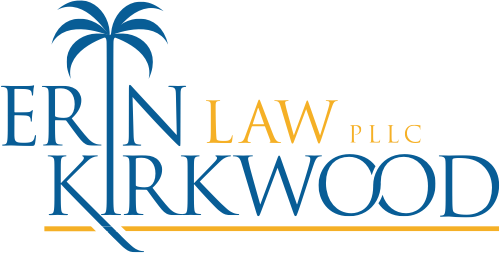A Trust Can Be A Powerful Estate Planning Tool
If you’re about to go through the estate planning process, you may be wondering if you need a trust. You might even be unsure about what a trust is and why it’s important. If so, you’re not alone. While trusts are a powerful and reliable way to achieve some important estate planning goals, they are not necessary or desirable in all cases.
The best way to know whether a trust is right for you is to consult with an experienced lawyer. When you contact Erin Kirkwood Law, PLLC, you’ll receive practical advice and guidance from an estate planning lawyer who truly cares about your needs and goals. Attorney Erin Kirkwood will empower you to make informed decisions that protect the best interests of you and your loved ones.
Trusts: A Basic Overview
When you create a will, you’re leaving a record of your assets and instructions about who should receive them when you pass away. A trust is a legal instrument that can accomplish the same outcome, but it gives you much more control over how, when and under what conditions your assets should be distributed to your chosen beneficiaries.
Trusts are highly customizable and are often created to meet specific goals. As just one example, if you have a son or daughter who suffers from a disability and will not be able to live with full independence as an adult, a special-needs trust can be created to provide supplemental financial assistance over a period of years or a whole lifetime.
The Estate Planning Benefits Of A Trust
If created carefully and correctly, trusts can achieve numerous estate planning goals, including the following:
- You can avoid or greatly simplify probate because assets put into a trust are no longer considered to be “estate” assets.
- You can reduce estate taxes.
- You may be able to protect assets from estate creditors to ensure that they will be passed to your intended beneficiaries.
- If you have children from more than one marriage or relationship, trusts can protect the inheritance rights of any children whom you name as beneficiaries (so they don’t need to rely on the goodwill of a stepparent, for example).
These benefits are in addition to any other specific purposes for which the trust was created. Erin will take the time to discuss your needs and wishes, including what and who you want to protect. If appropriate to meeting those goals, she will help you create a customized trust that gives you considerable control over the future distribution of your assets.
Talk To An Estate Planning Attorney For Free
Attorney Erin Kirkwood offers knowledgeable legal advice and compassionate guidance to clients going through the estate planning process. If you have questions or would like to know more about how she can help you, contact Erin to schedule a free 30-minute consultation at her office in Stuart, Florida. You can reach out online or call 772-732-8863.

